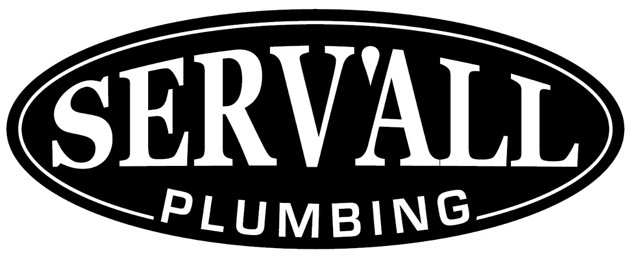While winter in Georgia may not be as cold as it is in more northern parts of the United States, homeowners still need to take proactive steps to prepare their homes for winter. This includes winterizing their plumbing systems to prevent frozen pipes.
With the average low temperature in Metro Atlanta in January being 34 degrees Fahrenheit, frozen pipes are a risk many homes in the area face. Below, the Serv’All team highlights some steps to take to prepare your home’s plumbing for winter.
How to Prepare Your Home’s Plumbing for Winter
Regular maintenance is important to keep your home’s plumbing system in good working order. This includes preparing it for winter. Below are six steps you can take now to prepare your home’s plumbing for the upcoming colder months.
1. Shutting Off Outdoor Faucets
While having an outdoor faucet can be convenient during the warmer months by allowing you to water your flowers, wash your car, and do other chores more easily, it can create a major inconvenience if it freezes and breaks during the winter.
To do this, open both the faucet and the bleeder cap on the shutoff valve to drain any water from the pipe. Once the water is completely drained, shut both the faucet and valve. Draining the water prevents ice buildup, which can damage your faucet.
For extra protection from the cold, consider putting an insulated cover on your outdoor faucet. It can slow heat loss from the pipe as it travels through the wall out into the cold and can be easily installed and removed as seasons change.
2. Disconnect Hoses
If you have a garden hose attached to your outdoor faucet, remove it, drain it, and store it for the winter. When left outside in cold weather, a hose can freeze, especially if it still has water inside of it. If your hose is connected to the faucet, ice can back up into the pipe, causing it to crack.
3. Install Heat Cables
For pipes on outdoor walls, heat cables are an effective way to prevent freezing. Using an integral thermostat that senses pipe temperature, these cables turn on and off as needed to heat the pipe. However, you will need an accessible outlet to plug in the cable, so be mindful of this before investing in this solution.
4. Insulate Your Home & Pipes
Most homes have piping in their basements or attics. Sealing cracks or holes using expandable foam can keep cold air out and warm air in. This, in turn, protects your home’s plumbing system from the cold outside. It can also lower your energy bills.
If you have pipes in an unheated area, like an attic or garage, cover them with insulation. For most pipes, this insulation is simply a foam cover that is easily installed. It helps to prevent heat loss and, as a result, damage from freezing.
5. Shut Off Water Lines While Away
Whether you have a camp you’re closing down for the winter or you are just going away from home for the holidays, turn the water off at the main shutoff. That way, if frozen pipes do break, you’ll have less damage to both your home and belongings.
6. Keep Temperatures Steady
While at home, you usually set the thermostat to a comfortable temperature. However, when you leave, you should keep your thermostat at a temperature that will keep your pipes from freezing, usually around 65 degrees Fahrenheit.
What to Do During a Cold Snap
Sometimes, the Metro Atlanta area experiences periods of colder-than-normal temperatures during the winter months, known commonly as “cold snaps.” During these times, you should take precautions to prevent your pipes from freezing.
One step you can take is to open your kitchen and bathroom sink cabinet doors. This allows heat from the rest of the home to circulate in, keeping the pipes warm. For extra warmth, consider using a space heater pointed in the direction of the cabinet.
Also, keep faucets running at a trickle to act as a relief valve for pressure that builds if pipes freeze and prevent them from cracking. However, you should not do this if the drain is on an exterior wall, as it can freeze, causing the sink to overflow.
Winterize Your Home’s Plumbing With Serv’All
When preparing your home’s plumbing for winter, there is a lot that needs to be done. If you’re not sure where to start, contact Serv’All in Acworth, GA. We understand the unique challenges Georgia’s climate presents and can prepare your home’s plumbing to face them going into the winter months.
Prepare Your Home’s Plumbing for Winter With Serv’All
If you’re not sure where to start preparing your home’s plumbing for winter, don’t worry. Consider hiring a professional plumber, like those at Ser’vall in Acworth, GA, to help. They can provide expert advice and effectively winterize your home’s plumbing. To start preparing your home’s plumbing for winter, contact us today.

